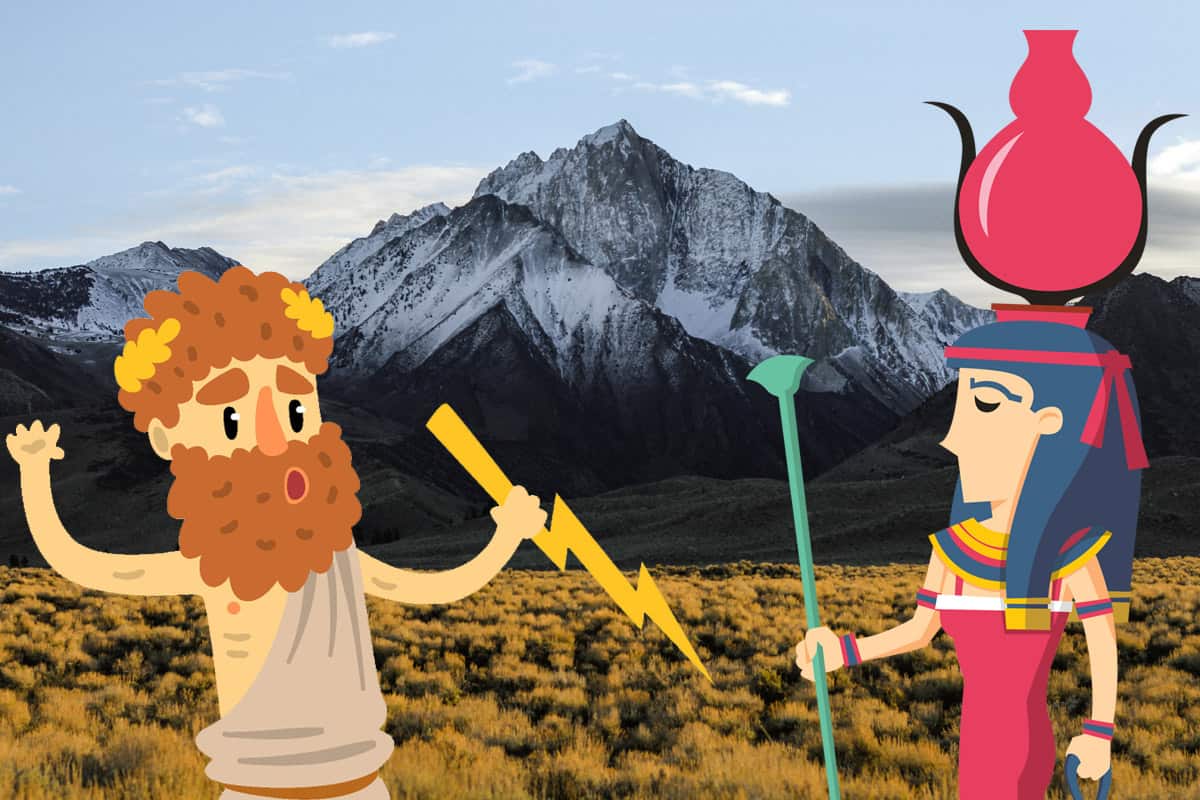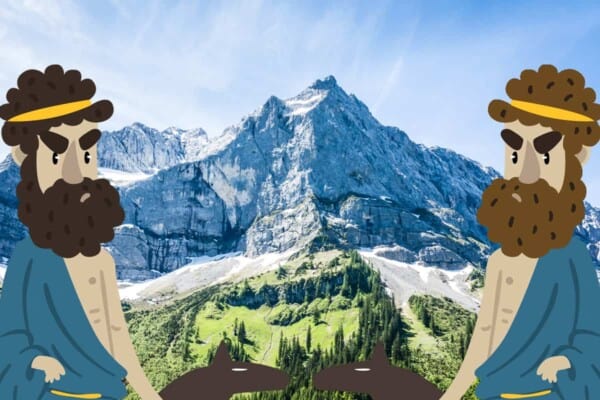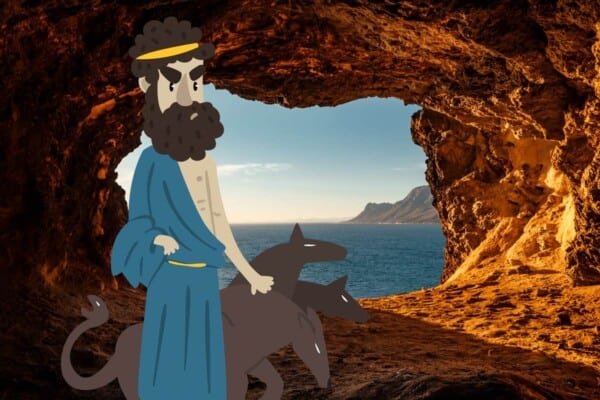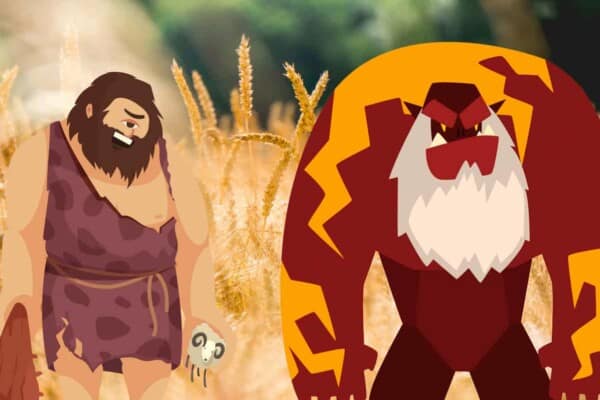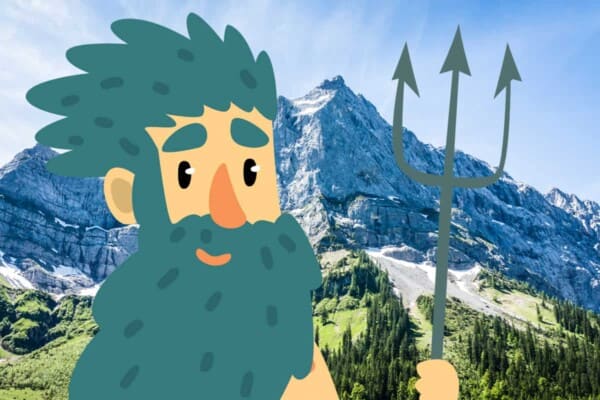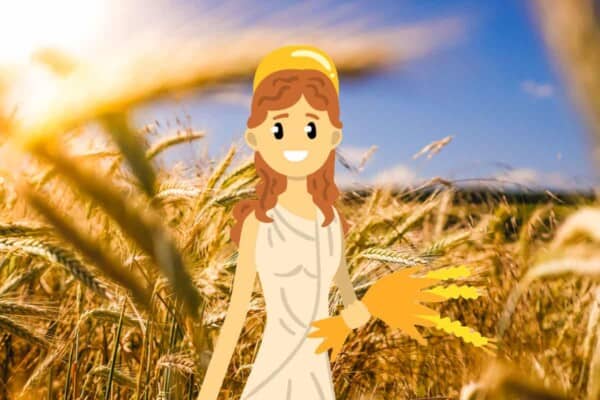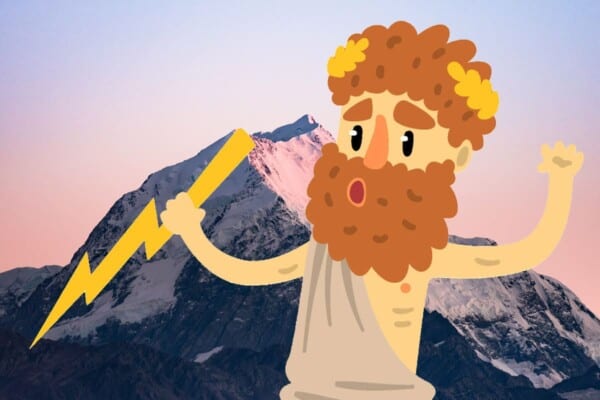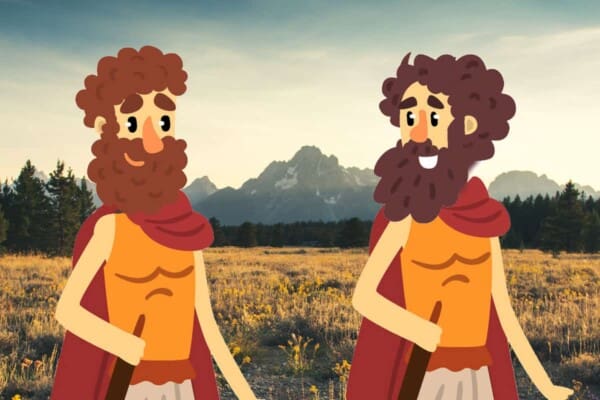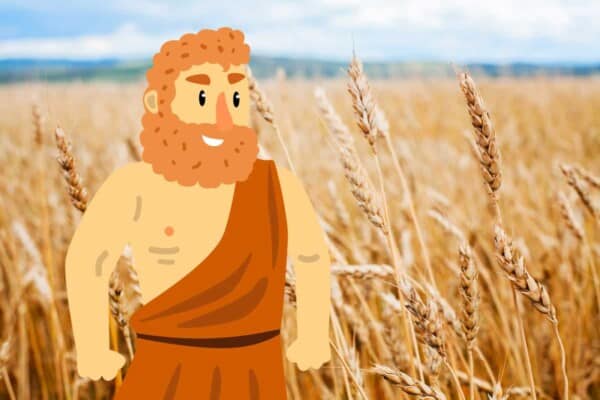The Greek and Egyptian cultures may appear very different to the average onlooker. But, the truth is, they share many similarities and commonalities. Together, their mythologies spoke volumes about the world, its origins, and the purpose of mankind.
Egyptian and Greek mythologies both pay close attention to the conflict between order and chaos. The deities each personified various attributes, personalities, virtues, and pitfalls endemic to human societies. Even though the gods and goddesses of Egypt may seem a bit more exotic on the outside (many being part animal in their depictions), there exists inside the myths a message which transcends both cultures. These deities differ, but they also share spaces of power and authority that make them counterparts.
In this article, we will explore 3 of the leading gods of ancient Egypt and Greece and explain their similarities and their differences.
Uranus and Nut
The Greek and Egyptian creation myths have many parallels, but the two main characters have some fascinating overlaps. However, for anyone familiar with the myths, this comparison may seem strange because Uranius is a male primordial deity while Nut is a female primordial deity.
But, their similarities override their gender identity which will be explained in the table below.
| Similarities | Uranus: Mysterious, male | Nut: A woman’s body arched creating the sky |
| Sovereignty | Sky | Sky |
| Origins | Primordial parentage | Primordial parentage |
| Children | Birthed the Titans | Birthed the Ennead (9 deities) |
| Spouse | The earth (Gaia) | The earth (Geb) |
Uranus
Uranus was born of Gaia (Mother Earth) and had no father. He later fell in love with his mother and sired the cyclops, the hecatoncheires, and the Titans. He resided in the heavens and was excessive in his lovemaking with Gaia to the point she could no longer hold her children in her womb.
In order to be freed, she gave her child a sickle as a weapon. Uranus was castrated and overthrown by his son, Cronus. From Uranus came the 12 Titans including Rhea, Cronus, Oceanus, Themis, and Mnemosyne.
Nut
Nut is the goddess of the sky, with her husband Geb (the earth) often depicted as lying beneath her. This power dynamic is a little different from the Greek counterpart. But, the relationships are very similar.
Nut gave birth to the Ennead (the first 9 ruling deities) with her husband. These deities included Isis, Osiris, Set, and Nephthys. She was given the title of mother of these deities rather than her husband being named their father. Unlike Uranus, however, Nut was not dethroned by her children. Rather, they presided over different spaces of power.
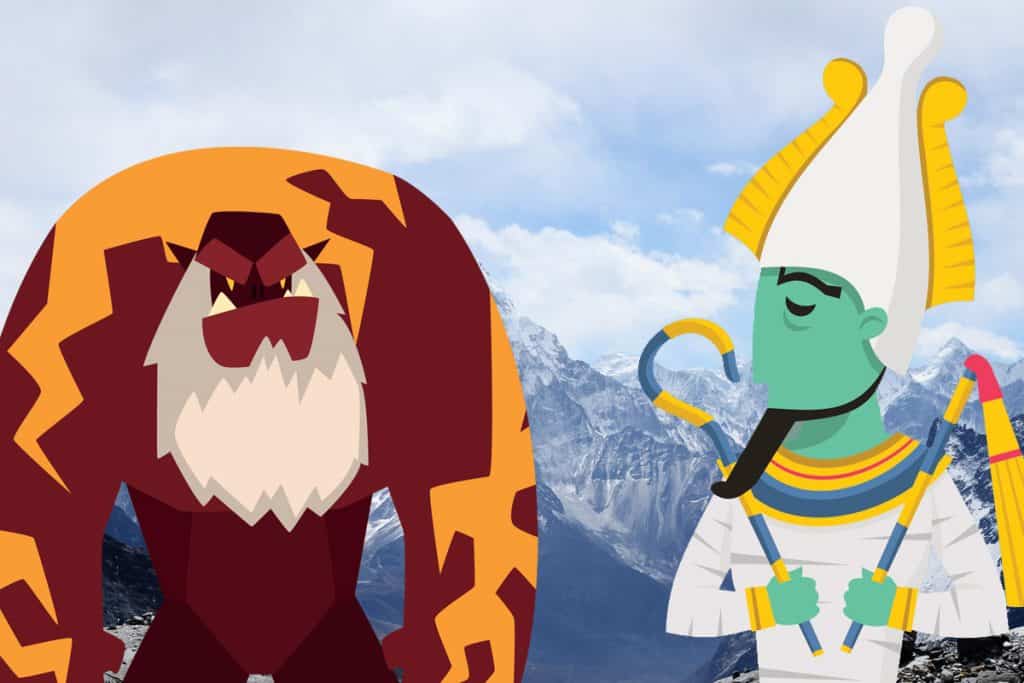
Cronus and Osiris
Cronus and Osiris are both agricultural deities. They are symbolic of life and fertility. Even though there are some stark differences, they share powers, positions, and symbolic importance.
Cronus was much more malevolent than Osiris who was a far more passive character.
| Similarities | Cronus: Bearded farmer | Osiris: Shepherd |
| Sovereignty | Agriculture/New life | Agriculture/Resurrection |
| Origins | Titan son of Uranus and Gaia (sky and earth) | Ennead son of Nut and Geb (sky and earth) |
| Children | 6 children total but dethroned by his more powerful son Zeus. | One child, Horus. Horus was the bringer of a new age similar to Zeus. |
| Spouse | Rhea, sister-wife. Titaness goddess of fertility and motherhood | Isis, sister-wife. Ennead goddess of new life and motherhood |
Cronus
Cronus is the son of Uranus and Gaia. He dethroned his father when he castrated him and freed his siblings from the womb of his mother. He became the god of the golden age of the world and due to his powers, the earth was fruitful and brought bounties.
He was beloved and blessed by his mother, Gaia. But, he was also warned by his mother that one of his children would also dethrone him and castrate him. He consumed his children until Rhea tricked him and saved her sixth son, Zeus.
Zeus would later overthrow his father. However, he made his father king of Elysium which is the land of bliss where the blessed dwell after they died.
Osiris
Osiris is the child of Nut and Geb and together with his siblings, he was one of the early leaders of the pantheon of gods. Osiris was associated with the Nile River which overflowed each year bringing the earth a fresh bounty of crops.
He was tricked and killed by his brother, Set. Set destroyed his body and scattered it across the earth. Isis gathered them and brought her husband back to life. With him she birthed Horus.
Horus represented new ideas and new ages, while Osiris represented tradition and order. He became the god of death and new life. Depicted in the mummy wraps of the pharaohs, he became the god of the Field of Reeds which was a realm of bliss and paradise.
Zeus and Amun
Amun and Zeus were first combined and associated by the Greeks when they learned of the Egyptian religion. Both deities are known as the father of the gods and the king of the gods, but their parallels don’t stop there.
| Similarities | Amun: A young Pharaoh | Zeus: A bearded king |
| Sovereignty | King/leader of the gods | King of the gods |
| Origins | A Nubian/Lybian god was adopted into the Egyptian faith. The Wind and solar god. Also known as the hidden god | Possibly a lesser god from the Canaanite regions which later gained prominence. The thunder god and god of heaven |
| Children | The juvenile Lunar god, Khonsu. | Many children. Artemis is Khonsu’s counterpart. |
| Spouse | Mut, virgin goddess and called “queen of heaven” | Hera, virgin goddess and also called the “queen of heaven” |
Zeus
Zeus was the son of Cronus and Rhea whom he overthrew and became the leader of the gods. He was called the thunderer and sky god. His realm was the mountain Olympus where he held court.
His association with kingship and power made him one of the most revered and feared of the Greek deities. Many scholars believe the conflict of the titans and gods (The Titanomachy) was representative of the old religions being replaced with the new.
Amun
Amun is the hidden one and the mysterious god. Much of his mythology is very vague and only loosely understood. Born from the primordial forces of creation, Amun was later associated with the solar god named Ra. Together, they became Amun-Ra.
Associated heavily with human government and power he was revered as the source of this power. He is the god of heaven and was said to reside in the dark places mankind could not perceive.

